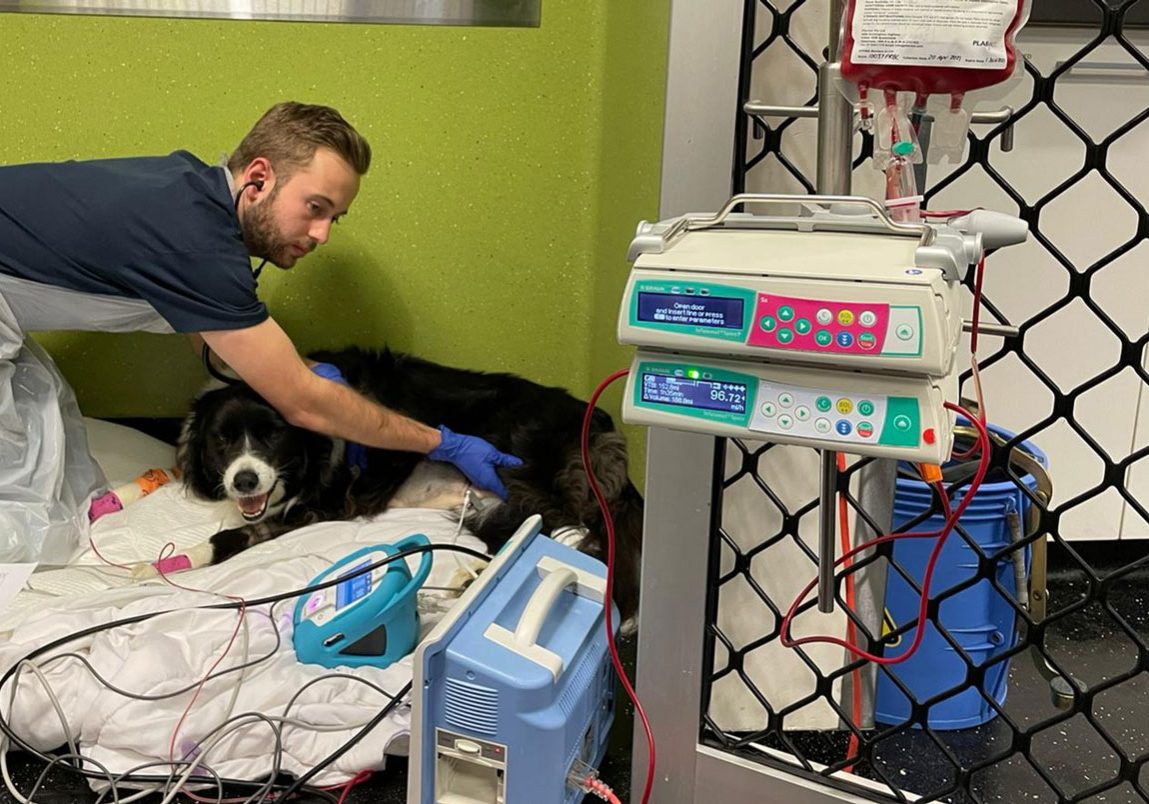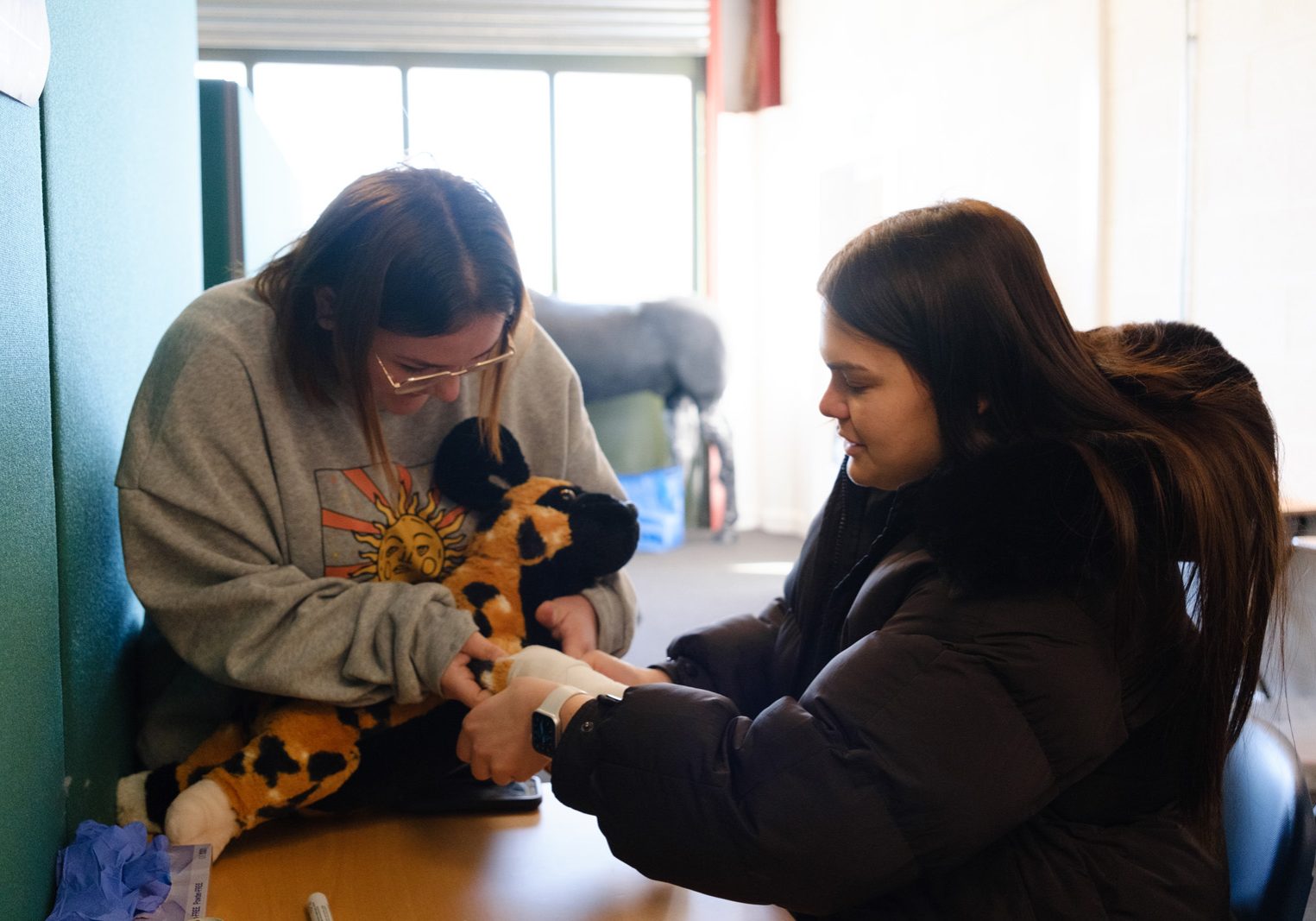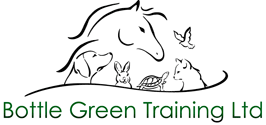Want to work in a veterinary practice?
Working within a veterinary practice is more than just working with animals. There multiple and very differing roles within a practice all of which are vital to the smooth running of the clinic or hospital and to ensure excellent patient and client care.
Examples of different roles are:
Client care and administrative roles, veterinary care assistants, veterinary nursing, veterinary surgeons, finance and management, cleaning and maintenance, laboratory and dispensary technician to name but a few.
All of these roles require good levels of communication skills and the ability to work as part of a team. You will need empathy and compassion for the patients and their owners at what can be a stressful time for both.

Want to be a veterinary nurse?
Veterinary nursing is the supportive care of animals receiving treatment within a veterinary practice. A veterinary nurse works as a member of the veterinary team, providing expert nursing care for sick animals.
Veterinary nurses also play a significant role in educating owners on maintaining the health of their pets. They carry out technical work and are skilled in undertaking a range of diagnostic tests, medical treatments and minor surgical procedures, under veterinary direction.
Typical veterinary nursing duties
The day-to-day job of a veterinary nurse will vary but responsibilities may include;
-
- Preparing patients for surgical procedures and supporting with anaesthesia
- Providing support to animals and their owners before and after operations
- Assisting in the operating theatre as a scrubbed veterinary nurse
- Carrying out veterinary nurse consultations
- Administering medications and fluid therapy to patients
- Observing and recording patients' vital signs (temperature, pulse, respiration and pain)
- Applying bandages to wounds and fractures
- Educating animal owners on nutrition and preventative care and providing basic behavioral advice
- Assisting during emergency procedures
- Carrying out a range of diagnostic tests in the practice laboratory (e.g blood samples, urine samples)
- Taking radiographs
- Dispensing medication and demonstrating to owners how to use them
- Supporting and leading teams
Veterinary nursing offers rewarding career opportunities for people interested in animal health and welfare. The demand for veterinary nurses is steadily increasing and employment prospects are excellent.

Want to be a Animal Care and Welfare Assistant
If you feel passionate about caring for animals and providing them with the best possible care, then an Animal Care and Welfare Assistant role may be for you. This course is useful for anyone working in all aspects of the animal care industry and has two possible routes at BGT. There is the Veterinary Care assistant route for people working in veterinary practice and the Animal Handling and Restraint route for anyone working within the animal care industry for example people working in kennels or catteries. Animal Care Assistants do many daily tasks, such as feeding, weighing and taking the temperature of animals. Other routine duties may include giving some medication, cleaning cages, or providing care to patients before and after surgery or other medical procedures.
Various duties of Animal Care and Welfare Assistants
The day-to-day job of an Animal Care and Welfare Assistant will vary but responsibilities may include;
-
- Monitor and care for animals after surgery.
- Maintain and sterilize surgical instruments and equipment.
- Clean and disinfect cages, kennels, and examination and operating rooms.
- Assisting in the provision of emergency first aid to sick or injured animals.
- Provide stimulation and environmental enrichment to animals
- Provide exercise and holistic care
- Providing nutrition and maintaining hygiene for animals
- Assist with the collection of samples such as blood, urine, or tissue for testing.
Animal Care and Welfare Assistants play a large role in helping colleagues with the care of animals. They are the first line in animal care and welfare.
Apprenticeship training - what is an apprenticeship?
Apprenticeships are for those aged 16 or over and combine working with studying to gain skills and knowledge in a job role.
Apprentices can be new or current employees.
Apprentices must:
- work with experienced staff
- learn skills relevant to their organisation
- get time for training or study during their working week
Find a training practice
When applying to a veterinary practice for a job it is important to think about how you can add value to a veterinary practice. It is expected that you want to work with animals and have a passion for improving care and welfare, however veterinary practice is much more than that. You need to be able to demonstrate key employability skills such as:
Working as part of a team – do you have any prior experience where teamwork has been required
Professional behaviours such as – punctuality, good communication skills, respect for peers and the public, tolerance of others views, the hunger to gain knowledge and constantly improve, the ability to maintain confidentiality, integrity and honesty.
Training practices can be found listed by area on the RCVS website Approved Training Practices - Professionals (rcvs.org.uk)
For the Level 2 course, the practices do NOT need to be a training practice.
To find a veterinary practice in your area you can use the RCVS find a vet page Home - Find A Vet (rcvs.org.uk)
